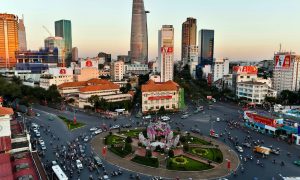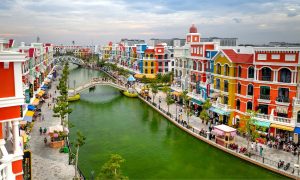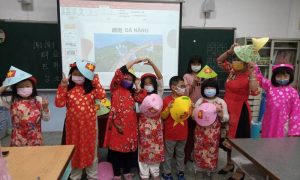With continued economic growth and a relatively affordable cost of living, Vietnam has become a popular destination in Southeast Asia.immigrantsOne of the destinations. In particular, major cities such as Ho Chi Minh City, Hanoi and Da Nang have attracted a large number of expatriates not only because of the many job opportunities and business potential, but also because of the relatively relaxed pace of life. For the planned 2025Immigration to VietnamIt is important to be aware of the latest visa policies, life on the ground, and what to expect. In this article, we will bring you an exhaustive list of the "2025Vietnam ImmigrationA full guide" to help you easily start a new life in Vietnam.
I. Visa Process: Latest Interpretation of Policies
In 2025, Vietnam's visa policy as a whole tends to be flexible and convenient, but the requirements for different types of visas still vary. Below are some of the most common types of visas and their processing procedures:
-
Work visa (LĐ visa)
Suitable for expatriates who intend to work in Vietnam. The application requires documents such as labor contract, employment certificate, etc. to be provided by the employer and filed with the Vietnam Labor Department. Usually valid for 1-2 years, renewable. -
Investment Visa (DT Visa)
Suitable for people who plan to invest and start a business in Vietnam. It is necessary to provide proof of business registration, proof of investment capital, etc. The approval process is complicated, but once approved, you can enjoy certain tax incentives. -
Dependent Visa (TT Visa)
For family members (spouse and children) of expatriates working in Vietnam. Proof of relationship and documents of the work visa holder are required for application. -
Business Visa (DN Visa)
Suitable for short-term study tours and business cooperation, single or multiple entries, usually 30-90 days per stay.
Most visas can be processed online through Vietnam's embassies overseas or through E-visa, while some categories (e.g. DT visas) are recommended to be assisted locally by a lawyer or an immigration agent, which can significantly improve efficiency.
II. Landed Life: Clothing, Food, Housing and Transportation in One Place
1. Housing
The rental market in Vietnam's major cities is relatively active, especially in Ho Chi Minh City and Hanoi where apartments come in a variety of types and prices fluctuate widely. A typical two-bedroom apartment costs between US$400-1200 per month, with beachside cities such as Da Nang offering better value for money.
2. Transportation
Motorcycles are the most mainstream form of transportation and are found in almost every household. If you are worried about the risk of driving, online taxi services such as Grab are convenient and affordable. Metro systems are gradually being built in some major cities, but overall public transportation is not yet developed.
3. Diet
Vietnamese food is dominated by rice noodles, spring rolls and coffee, which are both cheap and delicious. International supermarkets and upscale restaurants are also readily available, catering to a wide range of tastes.

4. Medical care
Public hospitals are affordable, but some English-language services are limited. International hospitals (e.g. FV Hospital, Vinmec, etc.) have advanced facilities and services, and it is recommended that you learn about the process and insurance policies in advance.
III. Notes on life: a guide to avoiding pitfalls
-
speech impediment
Vietnamese is the official language, and although English is spoken by young people and some in the service sector, it is recommended to learn some basic Vietnamese in daily life in order to communicate and integrate into the community. -
Visa Renewal
Some visas (especially work visas) need to be renewed on time, and overstaying them may result in fines or restrictions on entry and exit, so it's important to prepare your documents in advance and get them done on time.
-
cultural difference
Vietnamese culture emphasizes etiquette and human kindness, so when you first arrive, you should respect local customs and avoid touching on sensitive topics, such as religious beliefs and politics. -
social security
Large cities are generally safe, but you still need to take care of your belongings and guard against petty theft, especially in crowded markets and tourist attractions.
IV. Conclusion
2025Vietnam ImmigrationOn the road, there are both opportunities and challenges. As long as you plan your visa in advance, fully understand the local living environment, and respect the local culture, you will be able to reap a happy life for yourself in this warm land. We hope that this "full strategy" will help more friends to smoothly embark on the journey of moving to Vietnam and open a new chapter!






